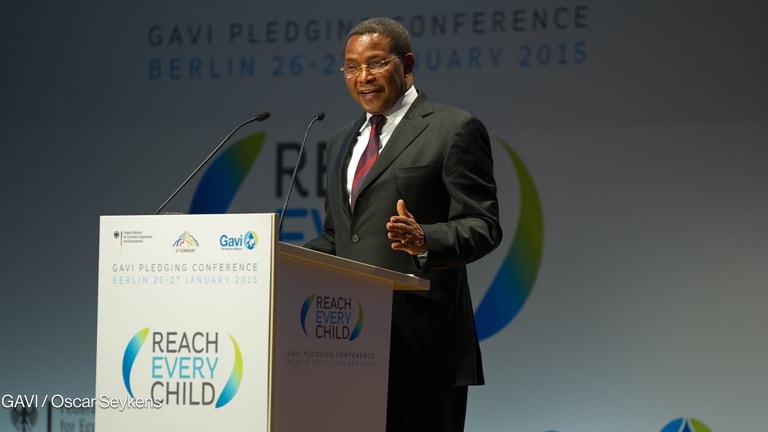
Most of my life in public service as a minister, a parliamentarian or a civil servant, I have continually learned lessons in good governance.
Good governance can accomplish great things. In fact, good governance can lift whole populations. It can support those in desperate need and it can help protect the innocent. It can enable amazing technological breakthroughs.
However, what no government can do is single-handedly solve the world’s problems. It needs to work with others. In particular, government needs to work with the private sector. Businesses have the ability to rally the public by providing solutions and applying knowhow to problems of any size.
Similarly, international organizations benefit enormously by working with the private sector. I know this from my own experience as chairman of the Gavi, the Vaccine Alliance, whose mission is to save children’s lives and protect people’s health by increasing access to immunization in developing countries.
Since Gavi’s inception in 2000, the private sector has been an instrumental partner in helping the alliance immunize nearly 500 million children, saving 6 million lives. Much of the private sector’s contribution to Gavi has been through the Gavi Matching Fund. Through this catalytic and cost-effective tool, the private sector has provided more than $111 million in cash and in-kind support, putting private sector contributors collectively among the top 15 donors to the alliance.
We need the help of the private sector more than ever. In Gavi’s next program period, 2016-2020, the alliance seeks to immunize 300 million children, which would save an additional 5 million to 6 million lives. To get there, Gavi is committed to increasing to 50 percent from 5 percent the percentage of children who receive all 11 vaccines recommended by the World Health Organization.
The private sector can be a critical part of making this a reality, helping the alliance remove barriers to immunization and create scalable and sustainable solutions for countries.
This is not a new role. In recent years, our private sector partners have helped bring to Gavi advanced supply chain logistics, mobile health technology and in-country volunteers, capable of raising awareness about the importance of vaccines. They have helped publicize Gavi vaccine programs, raised significant funding through the bond markets, brought new vaccines to market and educated families about preventable disease.
Despite all this, millions of poor children in the hardest-to-reach places still lack access to existing vaccines that can give them a chance at healthy and productive lives. GAVI now is in the midst of raising $7.5 billion to fund its programs from 2016-2020. More than money will be needed. Private sector partnerships will be instrumental in helping the alliance reach its goals.
The Gavi model is designed as a sustainable approach that puts countries on track to self-sufficiency. If we collectively seize the moment — the public and private sectors — we can accelerate progress toward a world where every child, everywhere, is fully immunized. And we all will be better for it.
Want to learn more? Check out the Healthy Means campaign site and tweet us using #HealthyMeans.
Healthy Means is an online conversation hosted by Devex in partnership with Concern Worldwide, Gavi, GlaxoSmithKline, International Federation of Pharmaceutical Manufacturers & Associations, International Federation of Red Cross and Red Crescent Societies, Johnson & Johnson and the United Nations Population Fund to showcase new ideas and ways we can work together to expand health care and live better lives.








